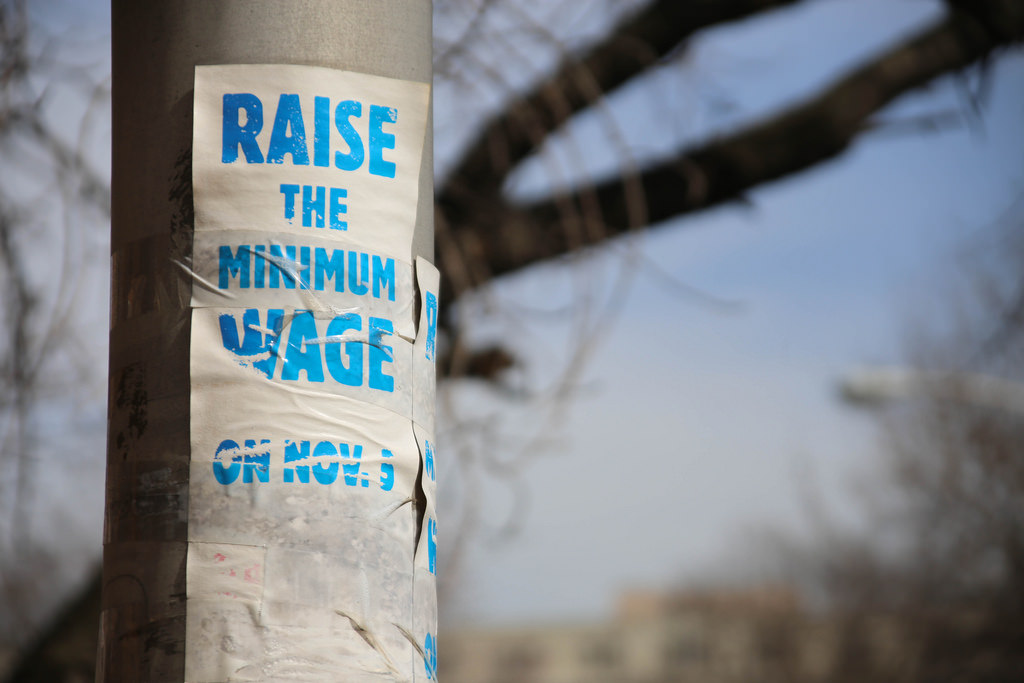The head of the ECB, which for several years has not been able to defeat low inflation, reiterated on Friday that the key factor hindering the growth of prices is that wages are not rising. But after monetary stimulus, which helped to reduce unemployment and stimulate consumption, Draghi sees the first signs of a change in the situation.
"With well-anchored inflationary expectations, the effect of past low inflation for the formation of wages should not be sustainable," Draghi said, speaking to bankers and regulators in Frankfurt.
According to him, as the labor market gets tougher, and uncertainty weakens, the growth of wages should begin to recover. "But we must remain patient," the head of the ECB stressed.
Any signs that workers will receive higher wages will be important for the return of inflation to the target ECB level, and will allow the regulator to reduce large-scale stimulation, including buying bonds and negative interest rates. Last month, the ECB's board of governors had already decided to halve the volume of monthly purchases of bonds starting in January.
Draghi noted that economic growth in the region "is clearly improving." However, he also warned that progress in the dynamics of consumer prices remains incomplete.
Draghi’s optimism is supported by the restoration of the labor market in the region. Employment in the block of 19 countries is at a record high, and the unemployment rate has fallen to a minimum since 2009. At the same time, the share of participation increased by 2 percentage points and was above the pre-crisis level, which was facilitated, in particular, by accession of women and the elderly to the labor force.
"The fact that unemployment has fallen so much, while participation in the labor force is growing, is a remarkable success story," Draghi said.
Against the backdrop of accelerating growth in the euro area, the Governing Council of the ECB decided at its meeting in October to extend the program of buying up bonds at least until the end of September 2018. At the same time, the regulator reduced the volume of monthly purchases from € 60 billion to € 30 billion starting from January.
Meanwhile, the economy of 19 Eurozone countries in the III quarter of 2017 increased by 0.6% compared to the previous quarter, according to the revised data of the Statistical Office of the European Union (Eurostat).
The GDP growth relative to July-September 2016 amounted to 2.5%.
The dynamics of both indicators coincided with preliminary data and consensus forecast of analysts.
In the II quarter of 2017, the euro area's GDP increased by 0.7% in quarterly terms and 2.3% in annual terms. Germany's GDP in July-September rose by 0.8% compared with the previous three months after rising by 0.6% in April-June. Italy's GDP growth accelerated to 0.5% from 0.3% in the second quarter. Meanwhile, France's GDP growth slowed from 0.6% to 0.5%, Spain - from 0.9% to 0.8%.
source: reuters.com
"With well-anchored inflationary expectations, the effect of past low inflation for the formation of wages should not be sustainable," Draghi said, speaking to bankers and regulators in Frankfurt.
According to him, as the labor market gets tougher, and uncertainty weakens, the growth of wages should begin to recover. "But we must remain patient," the head of the ECB stressed.
Any signs that workers will receive higher wages will be important for the return of inflation to the target ECB level, and will allow the regulator to reduce large-scale stimulation, including buying bonds and negative interest rates. Last month, the ECB's board of governors had already decided to halve the volume of monthly purchases of bonds starting in January.
Draghi noted that economic growth in the region "is clearly improving." However, he also warned that progress in the dynamics of consumer prices remains incomplete.
Draghi’s optimism is supported by the restoration of the labor market in the region. Employment in the block of 19 countries is at a record high, and the unemployment rate has fallen to a minimum since 2009. At the same time, the share of participation increased by 2 percentage points and was above the pre-crisis level, which was facilitated, in particular, by accession of women and the elderly to the labor force.
"The fact that unemployment has fallen so much, while participation in the labor force is growing, is a remarkable success story," Draghi said.
Against the backdrop of accelerating growth in the euro area, the Governing Council of the ECB decided at its meeting in October to extend the program of buying up bonds at least until the end of September 2018. At the same time, the regulator reduced the volume of monthly purchases from € 60 billion to € 30 billion starting from January.
Meanwhile, the economy of 19 Eurozone countries in the III quarter of 2017 increased by 0.6% compared to the previous quarter, according to the revised data of the Statistical Office of the European Union (Eurostat).
The GDP growth relative to July-September 2016 amounted to 2.5%.
The dynamics of both indicators coincided with preliminary data and consensus forecast of analysts.
In the II quarter of 2017, the euro area's GDP increased by 0.7% in quarterly terms and 2.3% in annual terms. Germany's GDP in July-September rose by 0.8% compared with the previous three months after rising by 0.6% in April-June. Italy's GDP growth accelerated to 0.5% from 0.3% in the second quarter. Meanwhile, France's GDP growth slowed from 0.6% to 0.5%, Spain - from 0.9% to 0.8%.
source: reuters.com





